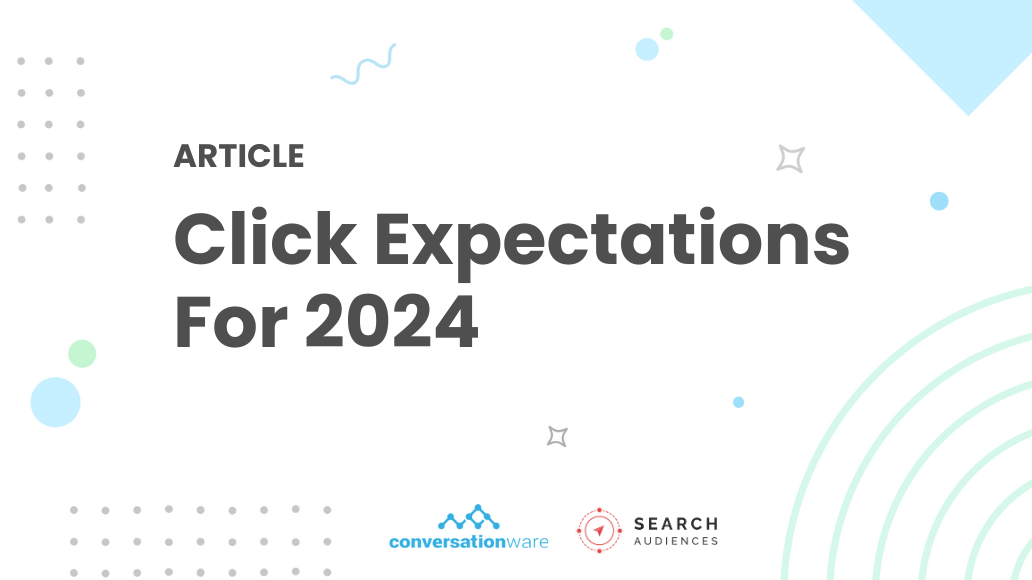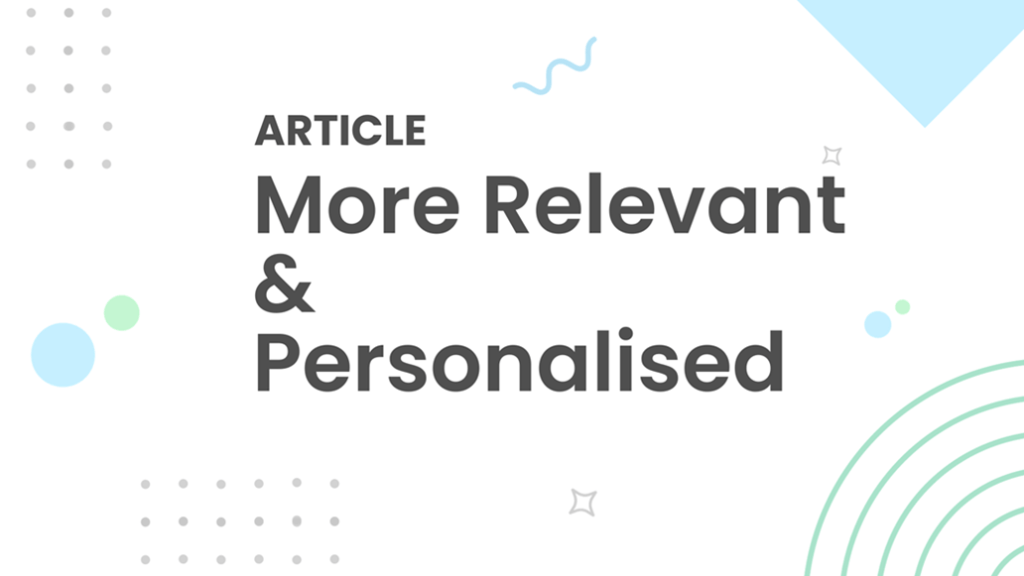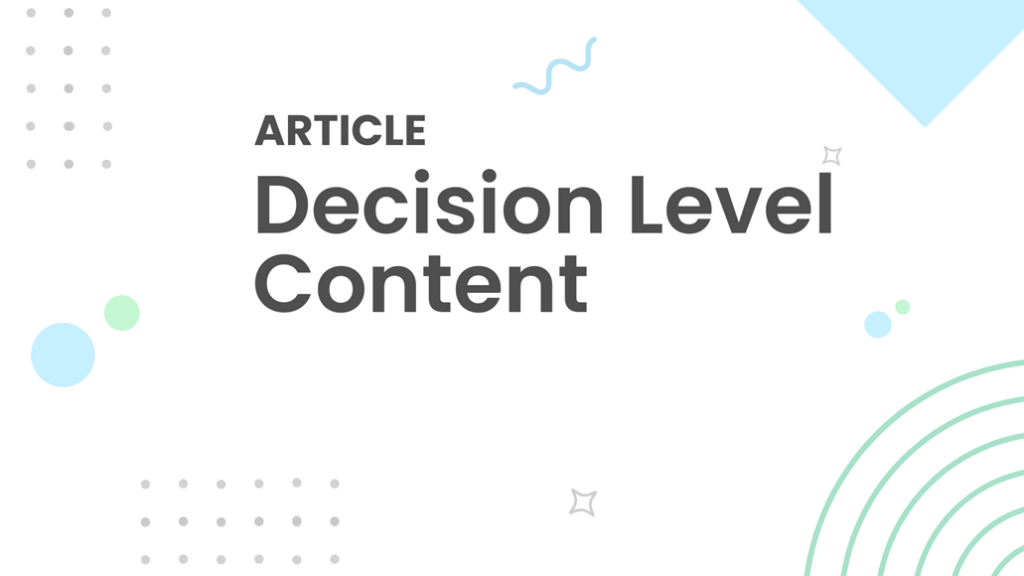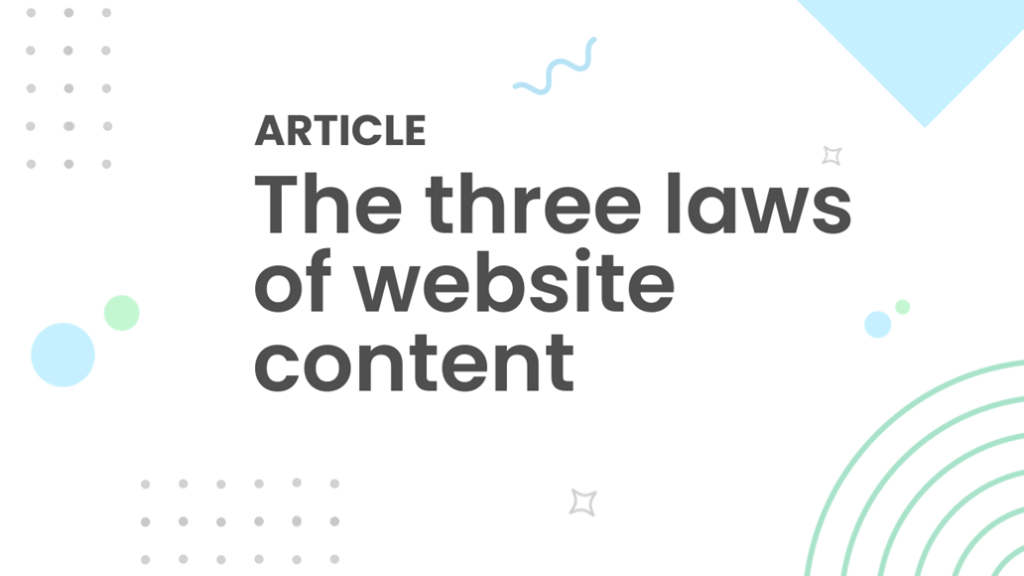
The Search for Value
More than any other time, we must share what is happening in Search Marketing in 2024. There has been a developing situation – speeding up – and we could do with everyone being on the same page.
I would like to include our team, clients and partners in all that we are trying to do to generate value.
Essentially, paid clicks behave more like SEO (more early-stage interest). What we are doing about that, we share in this post.
Trouble
Google has ripped up the rules and rebuilt the advertising engine. And not in an entirely good way.
- More words are included in the Ad Stream by default
- We can’t target ultra-high-value clicks without attracting others; costs are under upward pressure
- And, because ads now show up above more SEO, it reduces organic click market share, especially for valuable searches.
The better you were doing before, the more impactful the hit now.
We’ll get into the details, but if you are looking for reasons, it could be the average drop of about 20% in clicks the last year, on top of a fall in 2022. Google need more paid clicks. This and the economy mean many companies are bidding high (unsustainably), particularly for high-value products and services. It’s a bit of a spiral downward for value.
It will bounce back, and costs will drop again. It pays to be ready.
Give me solutions not problems?
I hear you. Having spent the best part of 18 months working on strategies, we can solve this. I hope to introduce you to them in the next few weeks. Apart from going ultra-detailed on all these new words we have to handle, the only other way to deal with it is to convert more of them. The playing field is evening out on traffic, we have to convert more.
To achieve this, we have been working on a framework to help understand search better and build better website experiences, and this is now largely completed. But first, we want to share what happened.
Firstly, it helps to understand what changed.
The nature of the change in Search
The best way I can describe it is this
Keywords are shopping bags
We are shopping for ad clicks. Google puts the shopping – the actual visitor search terms – inside the ‘keyword bag’.
In years gone by, the words we asked for were largely honoured; the words matched, and the bag contents were predictable.
- You wanted a type of cheese; you got it.
- We are good at finding highly undervalued cheese.
- The difference in value between slightly different words can be hard to conceive.
The ‘keyword’ shopping bag can now contain anything according to Google’s choice.
It might be the cheese you want. It might be a type of cheese you don’t want. It might not be cheese; it is sometimes ‘totally’ disconnected. It is more often curd. Early-stage clicks are 95% of all searches.
- They moved the edam cheese.
- They broke analytics.
- Measuring shopping bags with variable, invisible contents is an illusion.
A significant change.
Google want more people to pay for earlier stage clicks.
Some searches, like competitor names and locations we don’t want, are downright skulduggery. We proactively negate these. Maintaining profitability is much in click prevention.
The operation is more expensive mainly because we deal with earlier-stage clicks.
- The prospect of paying for multiple future clicks from returning early visitors
- They are ambiguous and fluffy, less specific in nature
- Those visitors don’t know yet know what they need
- They don’t see the right content. It’s missing because we weren’t handling those clicks before.
Some clients have the opposite issue, where we need more late-stage content. For most, the answer is writing things and creating pages that better serve early-stage visitors. How difficult can that be?
If you convert enough, then you can afford all the clicks you want.
Implications:
- We have more early-stage clicks to handle
- The nature of those clicks was unfamiliar when we first organised content,
- Single-keyword page combinations will not work as well as before
- We must be more granular with our ‘search content combos’ to serve more ambiguous visitors.
How to fix campaigns
Pretending all is fine and trusting Google’s ‘automation’ is not OK.
We do not believe any Google spin or recommendations or take them seriously without thought. Google bidding against itself in our own and direct competitor accounts will not end well. It is unethical. Their reps are now targeted on higher spend and also on getting settings changed.
Besides, we want to do better than competitor accounts, not the same.
We develop traffic control systems
Our negative game has to be spot on. The best we can be – we improve the more we try; recent efforts are promising – structuring 10’s of thousands of search terms is hard, and even then, we can’t prevent all the extra clicks. It’s insidious. It is also way more time-consuming than before.
How to fix more variable clicks
The second string to our strategy bow is familiar.
The conversion of more clicks holds by far the more significant potential for businesses. It might even prove good for the long-term health of our brands if we get there first. It is an opportunity to act quickly.
Influence early clicks
Those who effectively deal with more customers at earlier stages will have more influence and margin defence. Both fixing campaigns and site content depend greatly on knowing what words are worth and how to meet click intent with site experience.
Lots of progress here. I feel we are well-placed to help as a provider across all search disciplines. If we can’t prevent all clicks, we maximise them instead. It is not as if the visitors have no interest at all.
The site is worth three times as much as the click. Organising content can have a big impact.
Topic based content for earlier-stage visitors
Topics are the defining interest for both early and late-stage visitors; it is what they have in common. Building content for topics is highly recommended and is where the search industry is headed.
- It achieves maximum traction by changing the minds of people who are not ready to buy.
- The decisions they are trying to make are different, so the content should be granular to support them in the steps
Organising principles
This is a rough summary guiding our site development
- Match all searches with a page – number 1
- Build around topics, not single landing pages
- Understand the sales and marketing timeline
- Recognise niches and write for them
- Use navigational pages to handle ambiguous clicks
Now that 95% of searches are ambiguous, by their nature, the organisation and navigation of information have the most impact.
We have seen 3 – 5 times the number of leads by moving and grouping the right content by topic.
Improve SEO conversion
The bonus is that what we do to fix the paid traffic will also improve organic clicks. That early-stage organic cohort has always been slightly broken and ignored somewhat because it hasn’t been clear what they want and how we help them best.
Modelling Search Audiences
On our part, we now have a model to help understand the value of any search. It means we are better at helping organise and prioritise. Although, the proper process is still a work in progress. We haven’t found software to help us as yet.
- It is highly manual; spreadsheets are back.
- We’ll develop ways to share thinking more efficiently as we go along.
Help us?
This is a stressful time for many, and bad news is never easy at the best of times. Some people seem to want us to fix Google at our own expense. In the meantime, our service was under pressure just through learning and having to think harder at the same time as doing.
But that’s old news. We worked on it.
Now, we are in a great place and ready for 2024. A sense of calm because we know what to do. Bring it all on.







